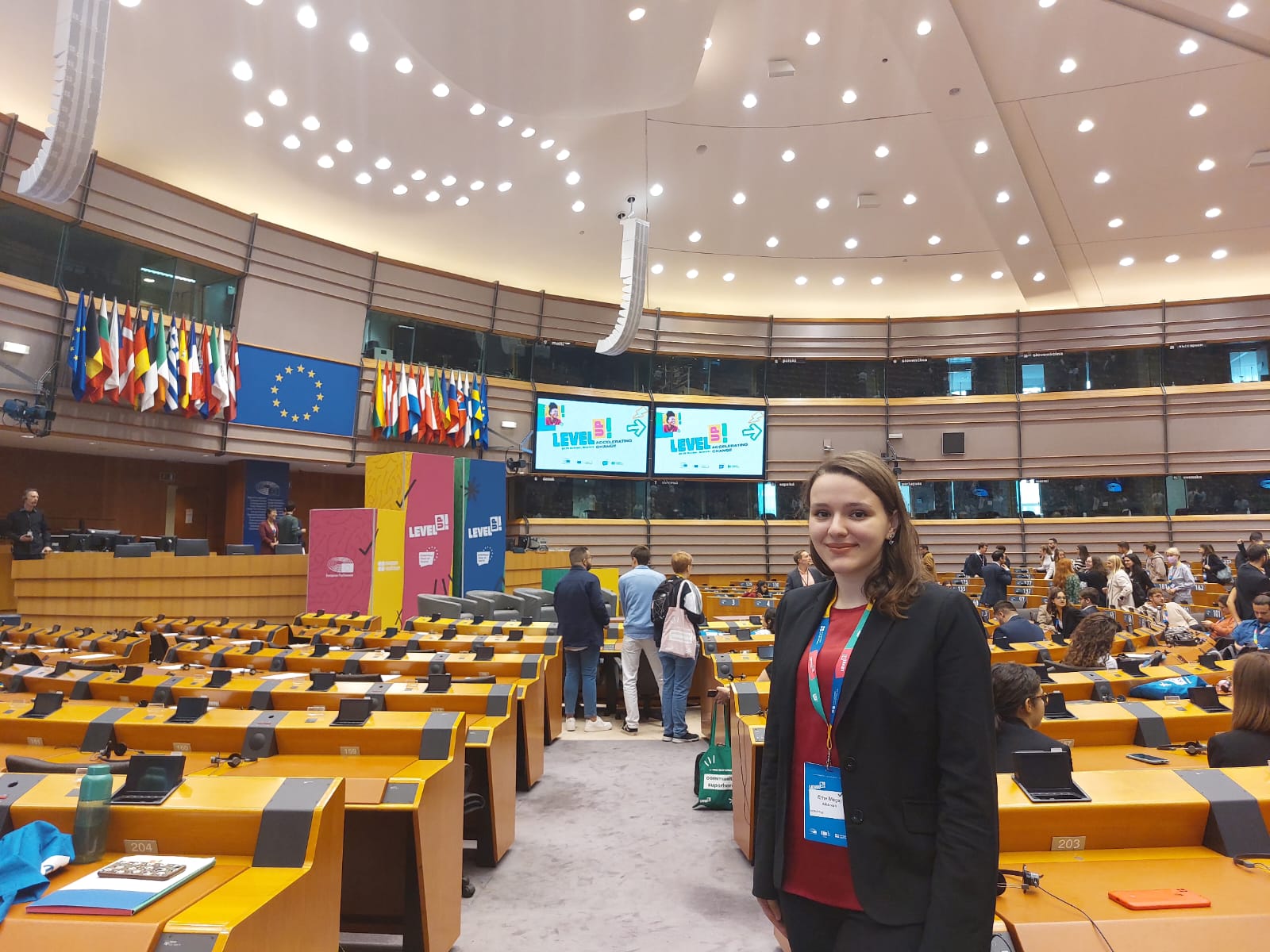In the words of Ema Meçaj: “Civil equality can truly be achieved only when gender stereotypes are reduced”
Date:

Ema Meçaj is a 19-year-old activist from Albania, currently pursuing a degree in medicine at the University of Medicine in Tirana. She is e member of the UN Albania Youth Advisory Group, a dedicated advocate for human rights, gender equality, and climate action. Ema Meçaj recently co-moderated the regional youth consultation from December 13 to 14, 2023, in preparation for the 68th session of the Commission on the Status of Women (CSW68). The consultation, organized by the UN Women Headquarters and UN Women Regional Office for Europe and Central Asia, aimed to contribute to crafting impactful proposals for presentation at the CSW68 session, themed “Accelerating the achievement of gender equality and the empowerment of all women and girls by addressing poverty and strengthening institutions and financing with a gender perspective”. In this Interview, Ema Meçaj reflects on the youth consultations, outlines the key issues for this year’s CSW, and emphasizes the vital role of youth in advancing the gender equality agenda.
“I hope that the preparations for CSW68 have been insightful and the discussions during the event will lead to effective actions for accelerating the gender equality goal and confronting poverty. I believe that a particular focus should be placed on strengthening education systems and planning gender-sensitive funding mechanisms, which would ensure meaningful inclusion and participation for women and girls.
And one of the key issues I would like to see addressed during this year’s Commission on the Status of Women is climate and its impact on women and girls. This issue is essential to highlight and address because climate change amplifies gender stereotypes, resulting in greater challenges, such as economic insecurity, poverty, and lack of access to different resources.
Nevertheless, for this to happen, young people need be provided with space and opportunity to exercise their role as agents of change and progress. In my opinion, our active civic participation is essential to identify issues faced in local communities, propose concrete solutions to decision-makers, and raise awareness among our peers. From a youth perspective, when we are actively involved as partners in youth policy, we feel ownership of the decisions made, and those decisions can correspond more effectively to our aspirations.
So, in my view, the remaining needs regarding infrastructures and systems supporting the rights and opportunities of women and girls consist in the education systems, employment opportunities, and funding mechanisms. Education systems must become resilient and upgraded with more inclusive and equitable facilities to ensure equal opportunities and access for all girls, especially those with disabilities and those from the most marginalized groups.
On the other hand, the lack of employment opportunities particularly affects young women and girls by restricting our access to economic resources. The labor market has changed, requiring new professions and individuals equipped with communication skills, critical thinking, and professional training. To achieve the full employment of youth, we need to develop and operationalize a global strategy that will contribute to growing and strengthening capacities for young women and girls.
And to conclude, if I were granted magical powers, I would counter hate speech and break all the gender stereotypes that are deeply rooted in our societies. Over the years, I have realized that gender-discrimination and gender-based violence are two of the biggest challenges women and girls face everywhere. Inequalities often start from an early age when we are socialized into restrictive gender norms and, over the years, continue to remain obstacles for our meaningful inclusion. I believe that a true civil equality can be built only when gender stereotypes are reduced.”